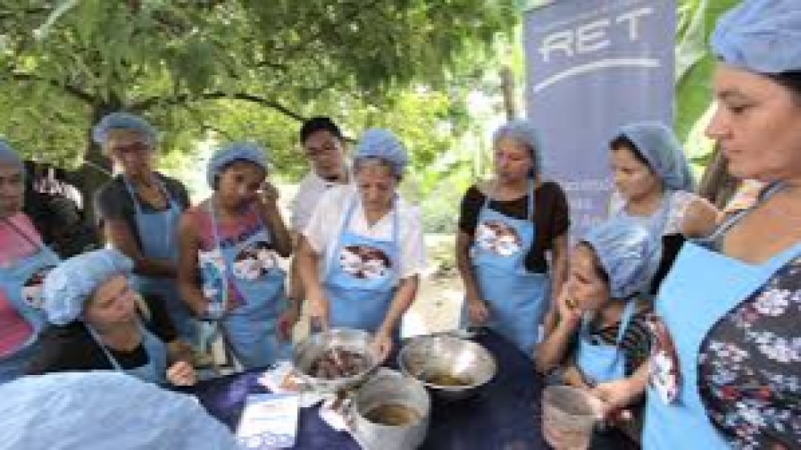Livelihood Programming for Refugees Training Course
Livelihood Programming for Refugees Training Course emphasizes strategic planning, innovative interventions, and sustainable livelihood solutions tailored to refugee populations in diverse socio-economic contexts.

Course Overview
Livelihood Programming for Refugees Training Course
Introduction
Livelihood Programming for Refugees is a comprehensive training course designed to equip humanitarian professionals, NGO staff, and community organizers with practical knowledge and skills to enhance refugee self-reliance and economic empowerment. Livelihood Programming for Refugees Training Course emphasizes strategic planning, innovative interventions, and sustainable livelihood solutions tailored to refugee populations in diverse socio-economic contexts. Participants will gain insights into international standards, policy frameworks, and evidence-based practices that ensure effective livelihood programming and measurable impact.
The training blends theoretical foundations with practical applications, enabling participants to design, implement, and evaluate livelihood programs that address both immediate needs and long-term resilience. By leveraging sector-specific tools, case studies, and participatory approaches, trainees will develop the capacity to foster economic opportunities, strengthen community structures, and support refugees in achieving sustainable livelihoods. This course is essential for those committed to promoting inclusion, equity, and social protection in humanitarian contexts.
Course Objectives
1. Understand global refugee livelihood frameworks and international protection standards.
2. Analyze socio-economic challenges and opportunities for refugee populations.
3. Design inclusive livelihood interventions that promote self-reliance.
4. Integrate market assessment tools to inform program planning.
5. Develop business and entrepreneurial skills for refugee contexts.
6. Apply monitoring and evaluation frameworks for livelihood programs.
7. Utilize participatory approaches to engage refugee communities.
8. Implement vocational training programs aligned with market demand.
9. Foster partnerships with local stakeholders and private sector actors.
10. Ensure gender-sensitive and youth-inclusive livelihood programming.
11. Address psychosocial factors affecting refugee economic participation.
12. Leverage technology and digital tools for livelihood initiatives.
13. Strengthen organizational capacity for sustainable program delivery.
Organizational Benefits
· Enhanced program effectiveness and measurable impact.
· Strengthened organizational capacity for livelihood interventions.
· Improved staff competence and professional development.
· Increased donor confidence through evidence-based programs.
· Strengthened community engagement and social cohesion.
· Access to innovative livelihood tools and resources.
· Enhanced monitoring, reporting, and evaluation systems.
· Better alignment with international standards and policies.
· Increased sustainability and scalability of refugee programs.
· Strengthened partnerships with government and private sectors.
Target Audiences
1. Humanitarian aid professionals
2. NGO program managers
3. Community development officers
4. Refugee camp coordinators
5. Social protection specialists
6. Policy makers in migration and refugee affairs
7. Vocational training facilitators
8. Donor program officers
Course Duration: 5 days
Course Modules
Module 1: Introduction to Refugee Livelihoods
· Understanding refugee livelihood concepts and frameworks
· Global refugee protection standards
· Socio-economic challenges affecting refugees
· Role of livelihood programming in self-reliance
· Stakeholder mapping and engagement
· Case Study: Successful refugee livelihood initiatives in East Africa
Module 2: Market Assessment and Analysis
· Conducting market assessments for refugee populations
· Identifying demand-driven livelihood opportunities
· Value chain analysis
· Integrating market data into program design
· Risk analysis and mitigation strategies
· Case Study: Market assessment for small-scale refugee enterprises
Module 3: Program Design and Planning
· Principles of inclusive program design
· Designing livelihood interventions for diverse contexts
· Aligning programs with local and national policies
· Resource mobilization strategies
· Developing operational plans and budgets
· Case Study: Designing a vocational skills program in Jordan
Module 4: Entrepreneurship and Business Skills
· Business planning for refugee entrepreneurs
· Financial literacy and management
· Accessing microfinance and funding opportunities
· Supporting small and medium enterprises (SMEs)
· Mentorship and coaching approaches
· Case Study: Microenterprise development in Uganda
Module 5: Vocational Training and Skills Development
· Identifying relevant vocational skills
· Training needs assessment
· Curriculum development for refugees
· Delivery methods and tools for skills training
· Monitoring trainee progress and outcomes
· Case Study: Vocational training programs for Syrian refugees
Module 6: Gender and Youth Inclusion
· Gender-sensitive livelihood programming
· Empowering women refugees in economic activities
· Engaging youth in productive opportunities
· Addressing cultural and social barriers
· Promoting social inclusion and equity
· Case Study: Women-led refugee cooperatives in Kenya
Module 7: Monitoring, Evaluation, and Learning
· M&E frameworks for livelihood programs
· Key performance indicators (KPIs)
· Data collection tools and techniques
· Analyzing and reporting results
· Using evidence to improve programs
· Case Study: M&E of a refugee entrepreneurship initiative
Module 8: Partnership and Resource Mobilization
· Building partnerships with local actors and private sector
· Resource mobilization strategies
· Advocacy and policy engagement
· Donor relations and reporting
· Sustainability planning for livelihood programs
· Case Study: Collaborative livelihood programs in Lebanon
Training Methodology
· Interactive lectures with real-world examples
· Group discussions and peer learning sessions
· Case study analysis and problem-solving exercises
· Hands-on exercises and field simulations
· Role plays and scenario-based learning
· Individual and group presentations
· Continuous feedback and reflection sessions
· Use of multimedia resources and digital tools
Register as a group from 3 participants for a Discount
Send us an email: [email protected] or call +254724527104
Certification
Upon successful completion of this training, participants will be issued with a globally- recognized certificate.
Tailor-Made Course
We also offer tailor-made courses based on your needs.
Key Notes
a. The participant must be conversant with English.
b. Upon completion of training the participant will be issued with an Authorized Training Certificate
c. Course duration is flexible and the contents can be modified to fit any number of days.
d. The course fee includes facilitation training materials, 2 coffee breaks, buffet lunch and A Certificate upon successful completion of Training.
e. One-year post-training support Consultation and Coaching provided after the course.
f. Payment should be done at least a week before commence of the training, to DATASTAT CONSULTANCY LTD account, as indicated in the invoice so as to enable us prepare better for you.